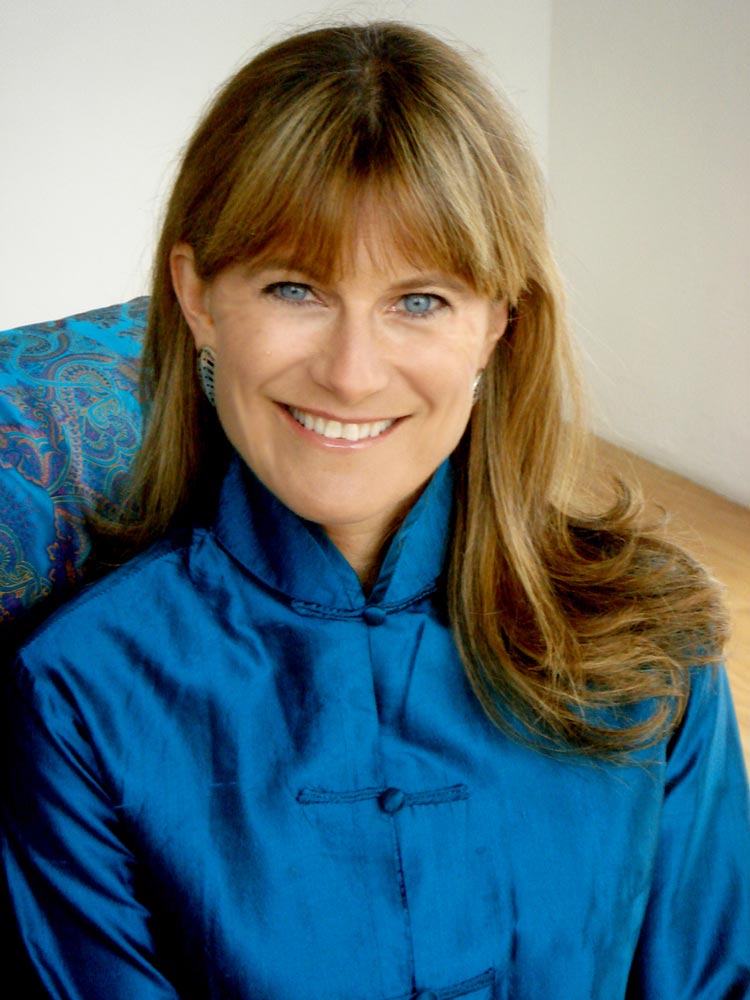Heroes of a New World Economy
Development up close and personal in Kenya

I meet Jane in Mathare Valley, a tiny strip of land a mile long and one-fifth of a mile wide on which 750,000 people live crammed into little tin huts tumbling along narrow alleyways running with raw sewage and sludge. It is a place known for high levels of crime, violence, prostitution, gangs and drugs. I’m visiting the township to oversee investments that Acumen Fund has made in Kenya that are focused on delivering critical goods and services to the poor.
Beautiful Jane, who has a ferocious scar just at the bridge of her nose between her doelike eyes, leads us through the winding alleyways to a four-story apartment building. It’s very basic, but looks impressive compared with the surroundings. Her bright home is on the second floor. Two velvet couches and a couple of comfortable chairs stand around a wooden table under a window covered by white lace curtains with images of birds woven into the fabric. A sewing machine lies at the edge of two wooden beds—one for her and the other for her three children—all enclosed carefully with breezy white fabric hanging from the ceiling. This is the home of a family on its way out of Mathare. You can see on Jane’s face a pride both gentle and fierce. It is only the scar, bursting like an exploding star, that reminds you constantly of her pain.
She tells us she’d dreamed as a little girl of becoming a doctor and marrying a good man who would build a family with her. She had to give up her dream of becoming a doctor because her own mother was single and unable to afford school fees. Jane married at 18 and had two children by the time she was 20. Her husband left her that year, and her mother died, leaving her alone with her babies and neither income nor skills. She turned to prostitution. She would go into Nairobi at night and often come back with hardly any money or none at all. “But,” she says, “it was the humiliation and shame that were worse than having no income.”

In 2001, a friend told her about Jamii Bora Trust, a microfinance institution that lends to the poorest, provided that individuals matched loans with their own savings. Acumen Fund has invested in Jamii Bora to help build Kaputei, a new town that will offer safe, affordable housing to former slum dwellers. It took Jane a year to save $50, but over time she was able to borrow enough to buy a sewing machine.
“Can I show you my dresses?” she asks, a smile creeping over her face. She finds a bag and pulls out frilly, frothy dresses, each capable of transforming any young woman into a princess. She buys ball gowns at the second-hand market and remakes them for local customers to wear to communions and sweet sixteens. Through this business, as well as through selling jewelry, Jane has come to earn a healthy living.
Jane’s face lights up as she tells us about the house she has purchased in Kaputei as one of the first 200 members to buy a two-bedroom home with a garden in the development. The challenge is that the development is located an hour outside the city, but when I ask Jane if she is scared or if she will miss anything in Mathare, she shakes her head. When I ask her about her dreams, she says her life doesn’t look exactly like she imagined, but in some ways her dreams are all coming true. Though she doesn’t have a husband, she said, maybe what she really wanted was a loving family, and she couldn’t love her children more. And though she isn’t a doctor, she helps others heal. Jane, who is HIV positive, tells me she feels blessed with good health since taking antiretrovirals and she now visits new HIV patients to counsel them. “I don’t give pills like a doctor,” she says, “but maybe I give patients something better, for me; I give them hope.” If building a world economy accessible to all people is a goal for our generation, then Jane and many others like her must be remembered as the real heroes among us.
Poverty is a condition of a lack of freedom. And if we want to overcome poverty, we need to build systems that enable people to lift themselves not just off the bottom of the barrel but out of the barrel altogether. Now is the time to imagine a global economy that provides people affordable goods and services that allow them to solve their own problems. Only then will we truly have the chance to end poverty.

—Jacqueline Novogratz (Col ’83) is the author of The Blue Sweater and the founder and CEO of Acumen Fund.